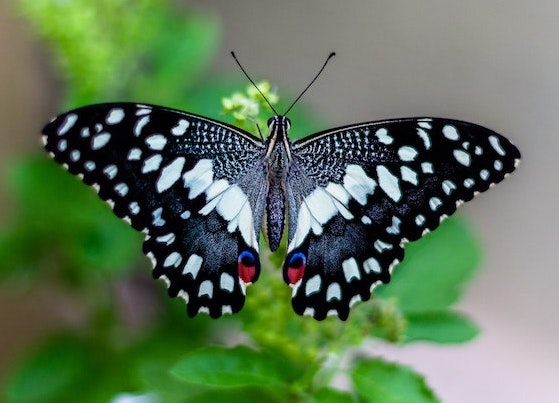While other hugs may be socially unacceptable, the butterfly hug may be just what’s needed now.
For many of us, DNA test results have delivered news that’s made nothing in our world seem normal. Our families may not be our families. The truths we’ve known may not be truths at all. We’ve been upside-down, turned around, and left looking for some kind of foothold—a way to ground ourselves in this new unreality. Then came a virus and a quarantine that have made everyone’s lives anything but normal. On top of that, an unprecedented political climate along with civil unrest have been both globally and personally destabilizing. If that weren’t enough, bring on the holidays, which for some in the best of times are difficult, stressful, and grief-inducing. But this year, even those who typically find the season joyful may experience sadness, disappointment, and grief.
If you experience anxiety, it’s likely been magnified in (or by) 2020. If you’ve experienced trauma, the fear and isolation caused by the pandemic may be retraumatizing. If you’ve been alone in quarantine or can’t spend the holidays with the people you love, your loneliness may seem overwhelming. Even if you’ve been holding your own, the common sorrow—the empathy and compassion fatigue for all who are struggling—may be depleting you. This state of life as we know it now may be getting on your last nerve.
If, as so many of us have, you’ve attempted to cope by overeating, drinking, catastrophizing, or hiding under the covers, you’re not alone. As we near the end of this off-the-charts bad year, we may all need self-care, but are too weary to make the effort. Among our resolutions may be to do better, perhaps even to seek the therapy many of us need to help us find our sure footing in our personal strange new world and in the strange new world everyone now inhabits. But there’s one little thing we can do to help ground ourselves in minutes—and it involves something many of us have been missing—a hug.
One mindful technique that can help keep you rooted in the moment and prevent you from focusing on worries is the butterfly hug. It’s a technique often taught by therapists who practice EMDR so that their clients can self-soothe outside of sessions. EMDR (which will be the topic of an upcoming article) stands for eye movement desensitization and reprocessing. Developed serendipitously by Francine Shapiro, PhD, it’s one of a number of evidence-based therapeutic modalities used to treat trauma and other painful experiences. It’s based on the principle of bilateral stimulation. While clients discuss an aspect of their painful experiences, they watch a rapid repetitive movement back and forth—possibly lights or the therapist’s finger moving across their fields of vision. It’s an approach that’s been proven to positively alter thinking and feelings relative to experiences—processing the trauma, defusing memories, and allowing people to be more present and less attached to the past. It produces a change in the neural networks that in turn produces a cognitive change.
The butterfly hug is a way to self-administer bilateral stimulation to reduce arousal. It was created in 1998 by Lucina Artigas, MA, MT, while working in Mexico with survivors of Hurricane Pauline. Simple to perform, you can do it any time you feel stressed, notice distracting negative thoughts, or are preoccupied with worries about the future. Make yourself comfortable sitting or reclining. Close your eyes if you wish. Lay your left hand across the right side of your chest and your right hand across the left. Link your thumbs so that your hands look like butterfly wings. Position your hands so your fingertips point upward toward the neck and rest them near your collarbone or your upper chest. Inhale deeply and exhale. Then—while thinking about what’s troubling you—tap your fingers on your chest in an alternating fashion, first your left hand tapping on your right side, then your right hand tapping on your left side, your hands moving like butterfly wings at whatever pace and pressure you like. Notice what your senses perceive: sounds, smells, images, feelings. Be aware of your thoughts without judgment and without trying to influence them. Repeat until you notice a sensation of greater calm and a reduction in negative thoughts. Inhale deeply and exhale. That’s it. It doesn’t take long to soothe yourself. In her protocol, Artigas advises doing the hug for no more than six to eight times to avoid overstimulation, but some practitioners suggest that it can be done for several minutes and can be repeated until you sense an increased feeling of calm. The technique will not eradicate anxiety, but it will bring it down a notch or two, which sometimes is just enough to make the days more manageable.
Click here for a video describing the method.
Keep in mind, the butterfly hug is a method of self-soothing but doesn’t take the place of therapy for extreme anxiety or PTSD. If you’re experiencing severe symptoms or if the hug increases your anxiety, talk with a mental health professional.

